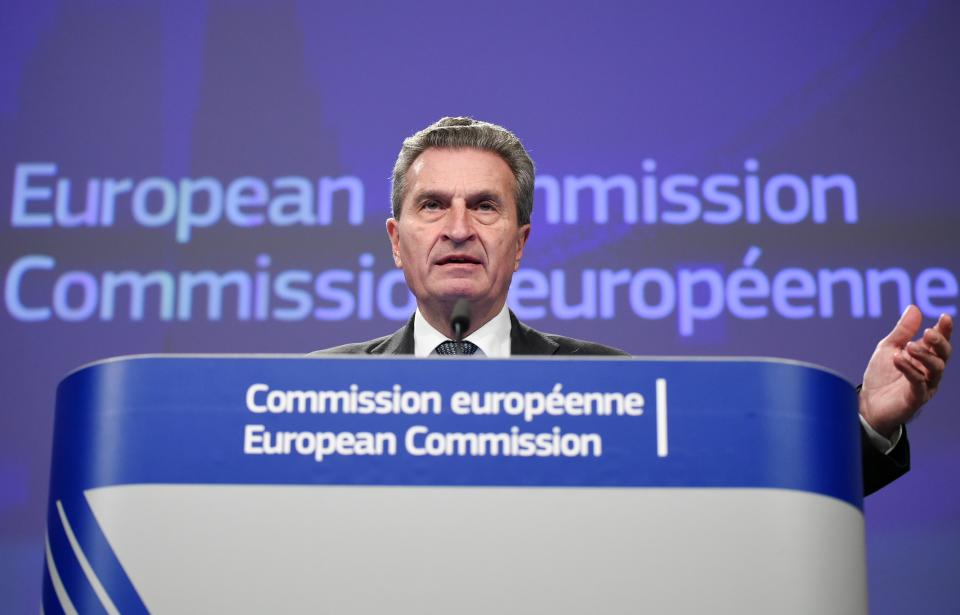Juncker aide given top EU job in ‘coup’ that may have been illegal, say MEPs

The “coup-like” way in which the EU’s top civil servant was appointed may have been illegal, according to senior MEPs.
The European Parliament’s powerful budgetary control committee said the double promotion given to Martin Selmayr last month “stretched and possibly even overstretched the limits of the law.”
Despite that, the draft motion they published on the controversy today stopped short of recommending that he is sacked as Secretary General of the European Commission.
The MEPs gave their damning verdict a day after quizzing the EU’s budget and human resources Commissioner Gunther Oettinger on the subject.
Mr Oettinger claimed the EU’s rules were “totally respected” when Mr Selmayr was promoted twice in the space of nine minutes and said he was “professionally and personally” qualified for the role.
He did concede though that political motivations may have played a part in the appointment.

A Commission spokesman was asked today about the committee’s conclusion, but said he had nothing to add to Mr Oettinger’s comments.
Mr Selmayr is a politically savvy German lawyer who until recently worked as Chief of Staff to European Commission President Jean-Claude Juncker.
Last month he was made the European Commission’s Secretary General – becoming the EU’s most senior civil servant – despite having never applied for the prestigious post.
He had applied to be the Deputy Secretary General in order to maintain his political influence in Brussels after Mr Juncker’s term finishes next year.
At a meeting of EU’s 28 Commissioners on February 21, his appointment to that role was approved.

Just minutes later, Mr Juncker announced that the then Secretary General was retiring.
On Mr Juncker’s proposal, the Commissioners then agreed to immediately transfer Mr Selmayr to the more senior position.
In the draft motion published today, MEPs say they are “disappointed” not a single Commissioner – including the UK’s Julian King – didn’t question the “surprise appointment” or call for a postponement of the decision.
It adds that the process was “conducted in a manner which aroused widespread irritation and disapproval in public opinion, among Members of the European Parliament and within the European civil service.”
And it warns: “This procedure constitutes a risk not only for the European Commission but for all the European Union institutions.”

The committee’s chair, Ingeborg Grassle, is from Mr Juncker’s own political group – the centre-right European People’s Party – whose members accept the controversy could help Eurosceptics.
UKIP MEP Nigel Farage has described the appointment as a “perfect stitch up” that shows why Britain is better off leaving the EU.
Although the draft resolution doesn’t call for Mr Selmayr to be sacked, MEPs are likely to propose amendments with that effect over the coming week.
The European Parliament will then vote on the resolution on April 19.

 Yahoo Finance
Yahoo Finance 